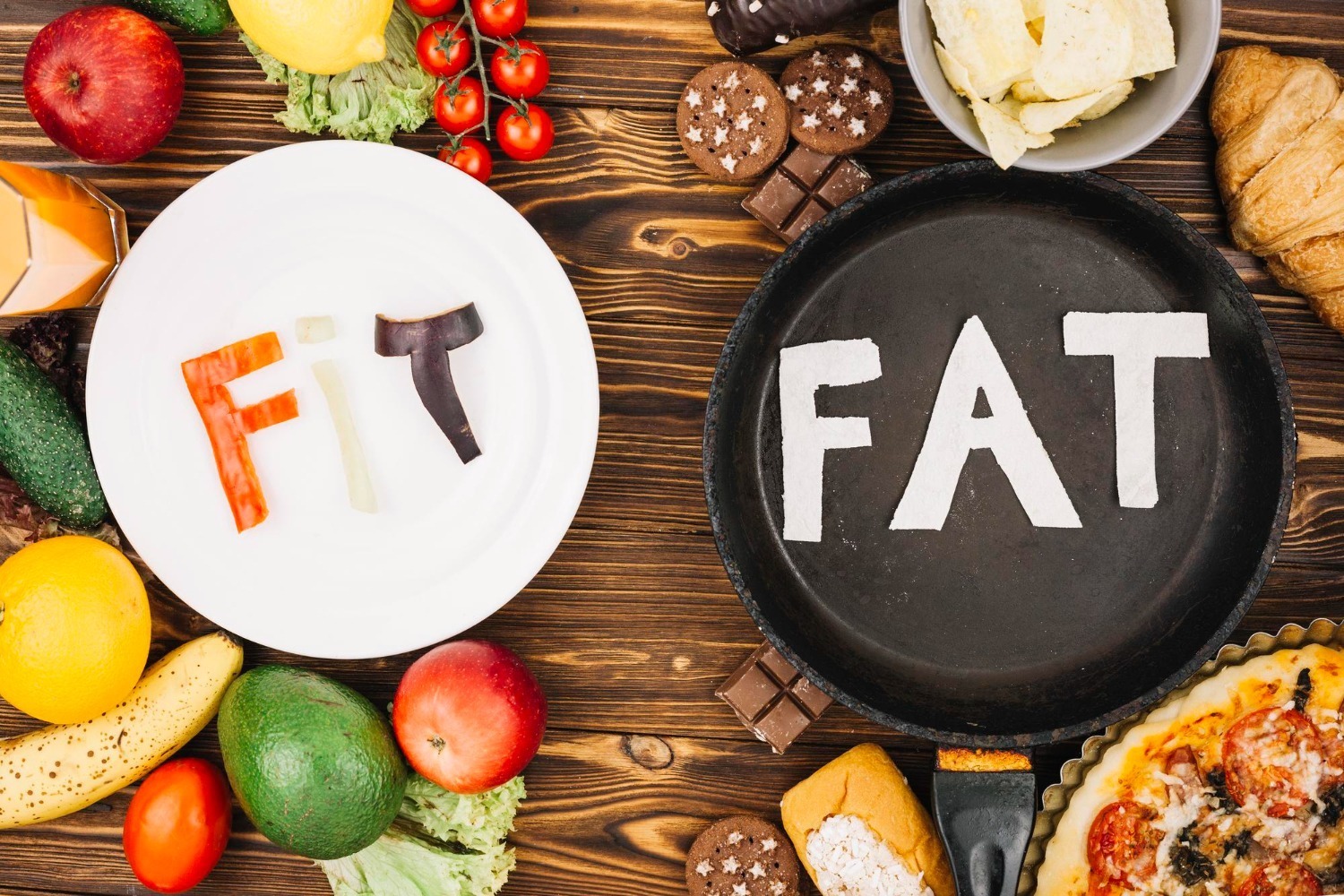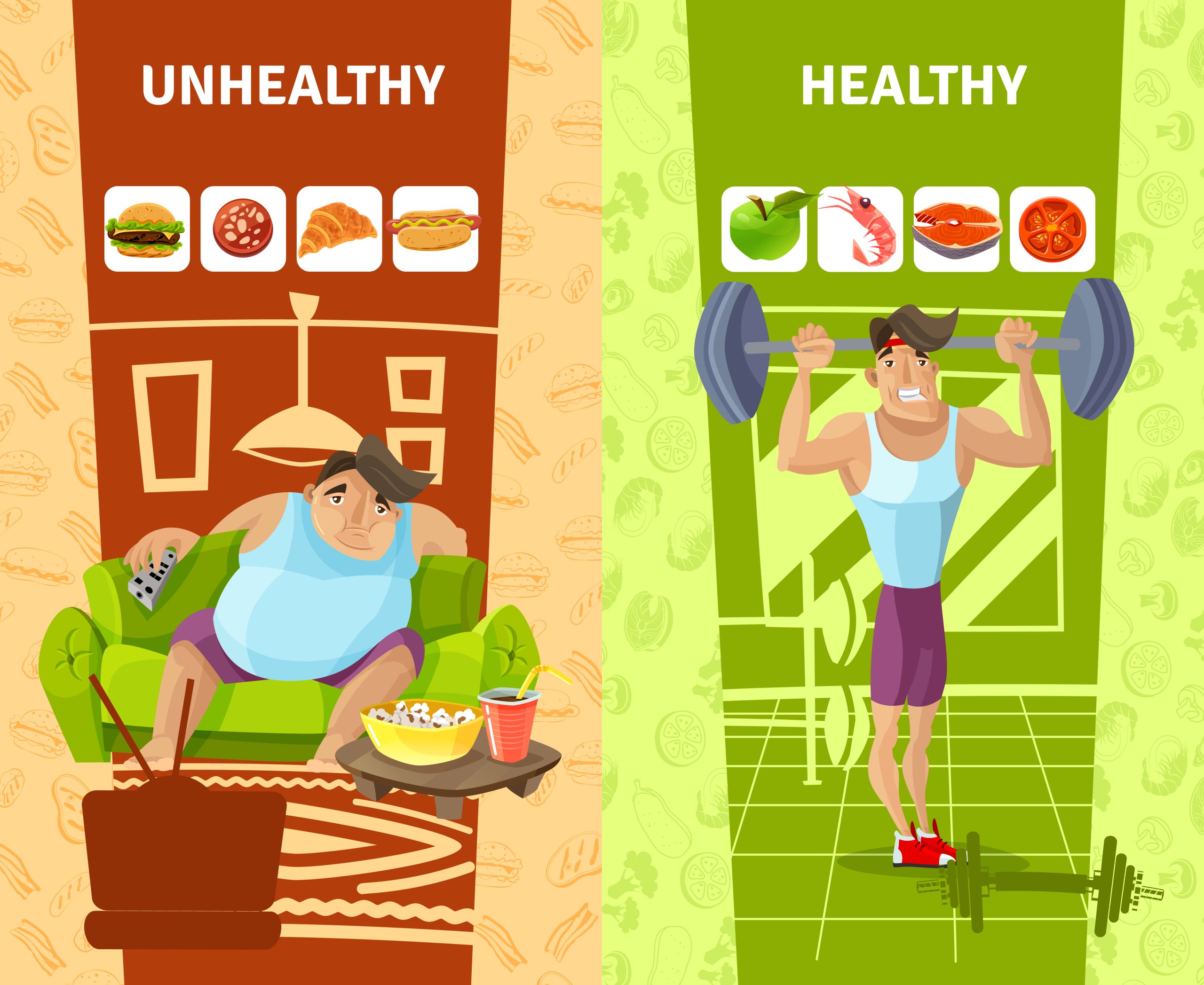
A recent survey showed that many people believe they are living a healthy lifestyle even though two thirds of us are overweight and one third of those obese. Most people believed it was a lack of exercise that contributed the most to their weight problems, not their diet. They also thought that weight loss surgery was the best remedy for losing weight followed by prescription drugs.
Really? How about good old fashioned exercise and healthy eating?
The raw truth is that one of the best predictors of cancer is excess weight. In short, if body fat is carried around for years the chance of contracting some form of cancer in later life goes way up. Without a doubt, we eat too much food. Especially foods laden with unhealthy man-made fats and sugars and we do not get enough physical activity either.
The hormone leptin:
Leptin is a hormone in our bodies that plays a big role in how hungry we feel, how fast we burn energy, and how we store and use energy from food. Its name comes from the Greek word “leptos,” which means thin. Leptin is responsible for a few important things:
- It tells our brain when we’ve eaten enough and it’s time to start burning fat for energy. Our brain’s control center for fat storage and feeling full, called the hypothalamus, gets this message from leptin in our blood.
- Leptin tells our brain whether we need more or less body fat.
- The amount of leptin our fat cells produce is directly linked to whether we gain or lose weight.
Unfortunately, similiar to insulin resistance, where our bodies become less sensititve to insulin over time, we can also become leptin resistant. Both insulin and leptin resistance contribute to being overweight and obese.
When we become leptin resistant, we have too much leptin in our body for too long causing our brain to become less sensitive to it. Sadly, “leptin resistance” actually gets worse over time and we end up overeating causing our leptin levels to spike even more. This sets into play a dangerous cycle that makes it tough to for our bodies to lose weight as it stores more fat, especially around the middle.
Obesity and leptin –
Obesity research is now turning to leptin signalling as a potential causal agent in obesity. It is that powerful a process.
The body becomes leptin resistant when:
We eat a diet which includes too many sugars and grains (grains turn to sugar once you consume them).
- The sugar metabolizes to (turns into) fat and is stored in our fat cells, which in turn causes a surge in leptin.
- Our body becomes resistant to leptin just as it can become insulin-resistant.
- We are not active enough and weak untoned muscles cannot help regulate fat burning/fat storing hormones.
Remember it is the muscle cells that uptake glucose and attempt to maintain hormone balance. Glucose from the food we eat is burned in the muscle cells for energy so strong toned muscles are very important if we wish to remain slim and healthy.
A leptin-resistant body no longer hears its own signals to stop eating, burn fat, or pass up sugary foods. The result? We stay hungry, we crave sweets, and our body stores ever more fat.
Lifestyles matter –

While the idea of leptin resistance is still a frontier science there are a few basic lifestyle changes we can do to prevent ourselves from becoming leptin resistant while we wait for more research to be done:
Avoid high density foods:
Foods that are highly caloric promote elevated leptin. What do I mean by high-density food? In short, foods that have a very high ratio of calories and energy to their total volume. Think processed foods—fried foods, cheesecake, ice-cream, pizza, candies and concentrated sugar drinks.
Eliminate sugars and grains:
Are you aware that refined sugar is far more addictive than cocaine? In fact, it is one of the most addictive substances that can be consumed. But refined sugar is not the only thing to be avoided when a sweet craving kicks in. Starch, in the form of grains metabolizes into sugar in the body and should also be eliminated from our diet especially if we currently suffer from excess weight, diabetes or high cholesterol.
Eat plenty of good fats:
A high sugar diet combined with low essential fat intake causes hunger. Good fat intake combined with quality protein along with heavy fibrous carbohydrates for volume tends to makes us full and satisfied so we stop eating.
Good fats to include in our diet: (Most people need upwards of 50–70 percent fats in their diet for optimal health.)
Flaxseeds/meal/oil, hempseed/oil, walnuts, pumpkin seeds, Brazil nuts, sesame seeds, avocados, dark leafy green vegetables (kale, spinach, chard, mustard greens, and collards), wheat germ oil, salmon, mackerel, sardines, anchovies, albacore tuna, coconut meat and oil, butter and animal fats from free ranging animals.
Avoid chronic hunger by eating balanced meals:
The current trend by drug manufacturers is to take a pill to curb hunger. However, we will never learn to control our food intake if we opt for what may seem like an easy way out. If we want a permanent solution, hunger should be dealt with through food/diet/discipline, not drugs.
If you think you can fool your body you are in for a shock. Diet pills are a VERY short term measure and can NEVER contribute to a strong, toned, youthful looking body.
Lose weight:
While losing weight seems like a catch 22, that’s exactly what leptin resistance is, a catch 22. The fact remains that being overweight goes hand in hand with elevated leptin levels. That means excess weight really must come off if we really want to get control of this unhealthy situation.
Proper exercise is one of the most effective ways to regain insulin sensitivity and reverse insulin resistance—this is true for both strength training and high intensity aerobic (short burst intervals) workouts. Studies show regular, on-going exercise is absolutely crucial in getting rid of dangerous visceral fat along with normalizing insulin and leptin levels.
Insulin and leptin resistance is no joke. It is real and we want to avoid becoming resistant to our own hormones at all costs as it just adds to our risk for disease.
Being physically active is more important for our health and well-being than most of the other things we think must get done each day. Workout scheduling needs to be a priority and a place on our daily calendars. Fitness goals need planning just like we would plan for success in our career. So don’t sit around and say you have no time. Rather than complain about time, simply reorganize your time.
To summarize: Insulin and leptin resistance are core factors in obesity, which in turn is a risk factor for cancer and may even boost tumor growth as well as other lifestyle diseases. However, healthy eating and proper exercise are both empowered to reverse insulin and leptin resistance.
The sooner you get started on your healthy eating plan and exercise program the sooner you return your body to a healthy chemical balance allowing it to lose excess weight, reduce the health risks and restore your good health.
You can be fit or fat but you can’t be both.
Isn’t it time to take command of your life?
“Healthy Self Healing” can help you do just that…
For more tools and resources from Carolyn Hansen to assist you in attaining your health and fitness goals and achieving the success you desire in life, please visit:

